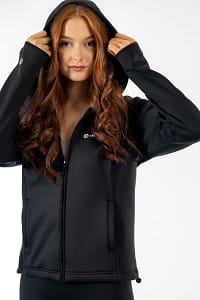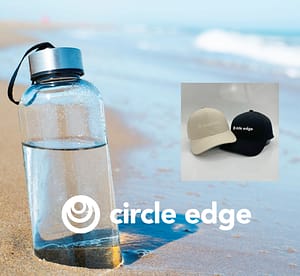Do I need a Sports Drink when I Exercise?
It is common to see people regularly drinking from sports bottles during training and competition. However, the wealth of information regarding fluids and exercise often leads to confusion about what, when and how much to drink. Before we look at the pros and cons, lets look at the basic science.
What happens to the body during exercise?
During exercise, the internal (core) temperature of the body increases. Humans can only tolerate small increases in internal temperature, therefore the body must get rid of this heat to prevent overheating and heatstroke. Sweating is the main method used by the body to lose heat and the evaporation of sweat accounts for up to 80% of heat loss during vigorous activity. Our bodies are made up of approximately 55-65% fluid, so when some of this fluid is lost through sweat, our ability to function adequately is compromised. Fluid loss places a significant strain on circulatory function, which ultimately impairs exercise capacity and athletic performance.
An additional consequence of prolonged exercise is the depletion of bodily stores of Carbohydrate, which is the body’s preferred fuel for energy during intense exercise. Our body’s reserves of carbohydrates are limited and can become depleted during prolonged exercise, which then leads to a reduction of sporting performance. Carbohydrate is present in the body as glycogen, in the muscles and liver and as glucose in the blood and this balance needs to be maintained. Replenishment of carbohydrate stores is therefore necessary to maintain optimal performance.
The other factor to consider is the role of sodium (an electrolyte) when exercising. We all know the salty taste of sweat dropping onto your lips during exercise and this is the effect of your body loosing sodium. Sodium helps regulate blood pressure, as well as fluid balance in the body by drawing water into cells and tissues, with muscle cramping being a direct sign that this balance has been impaired. Numerous studies have shown a direct correlation between sodium deficiency and impaired performance, particularly during intense and long periods of exercise.




Do I really need a Sports Drink? Won’t Water do?
It really depends on the intensity and duration of your workout but water is generally sufficient for shorter, less intense sessions as realistically, all that your body will need replacing is fluid. Anything over 60 minutes and you should be considering consuming a sports drink, as your Carbohydrate and Sodium levels might start to become impaired. The main exception to this however, is if you haven’t eaten for a long time before your session. In this case, your carbohydrate levels might quickly diminish and affect performance, so a sports drink will help top up your levels to prevent this.
What Should I Look for in a Sports Drink?
Formulation is the key. A good sports drink should contain 6-8% carbohydrate solution and also approximately 50mg of sodium per 100ml of drink. Make sure that you avoid energy drinks, as they contain caffeine, which is a diuretic (increases the production of urine) and will actually make you dehydrated. Of course, sports drinks are quite expensive and there is actually no need to purchase them at all – you can easily make your own! Simply mix 750ml of cold water (always keep a jug of cold water in your fridge) with 250ml of ordinary (not low sugar) squash or cordial and then ¼ of a tablespoon of salt. Mix together with a whisk or fork and put into a bottle and there you have it – a perfectly good energy drink at a fraction of the cost!
Conclusion
It can be very tempting to think that as you are exercising, you need to have a bottle of sports drink in your hand. The reality is that more often than not, you probably do not need one and water will be sufficient. The big thing to keep in mind, is if you are consuming a sports drink and not exercising enough to require it, all that you are actually doing is putting on calories! Far from loosing weight after your run or gym session, you will actually be putting on weight from the calories contained within the drink. Do not get into the habit of bringing a sports drink to any session that you do – plan ahead and analyze what the activity is, how intense it is and how long you will be doing it. Do remember that it has to be an intense or long workout and that you have to be sweating sufficiently to require a sport drink. Finally, remember that the weather can play a big role in this – if you are running on a sunny day, you will obviously sweat a lot more than on a cloudy day and in those circumstances, you will probably benefit from a sports drink, so always check the weather forecast!
